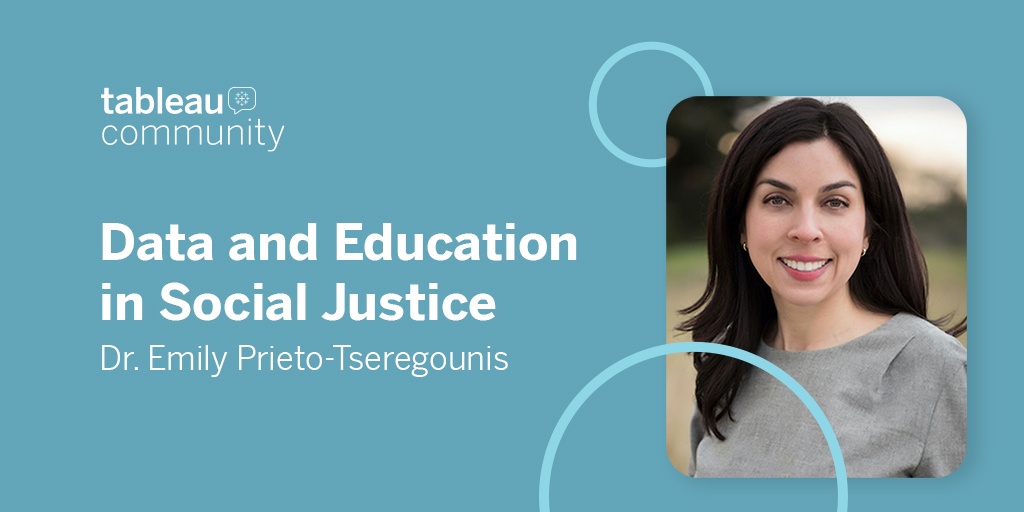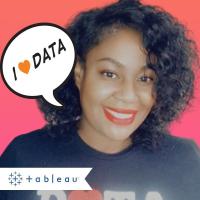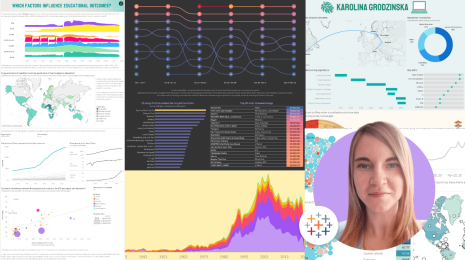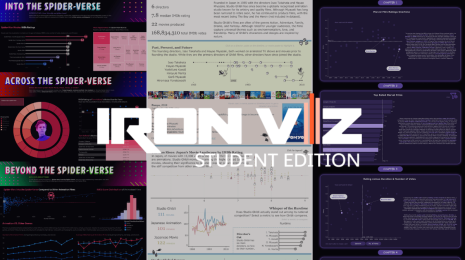Data and education for Social Justice: Dr. Emily Prieto-Tseregounis

At Tableau, we feel that data skills are essential for the next generation of professionals and business leaders. The Tableau Academic Programs seek to arm students and instructors with the valuable analytical skills needed to think strategically and make an impact.
Data is such an important piece of the social justice puzzle, and using critical data skills can drive insights into real actionable change.
In our new series, Data and Education for Social Justice, we’re excited to spotlight people in the education community that are making a difference in the social justice world. These spotlights will highlight five main principles of social justice:
- Access to resources
- Equity
- Participation
- Diversity
- Human Rights
Learn more about Vice President of University Initiatives and Chief of Staff to the President at Samuel Merritt University Dr. Emily Prieto-Tseregounis. In her role, she works proactively to identify key issues in addressing student success to deliver high-quality health sciences education with a focus on compassion and community engagement.
Do you feel that data should be discussed in terms of Social Justice? Why?
Absolutely, data can provide compelling evidence for the presence of social inequities.
A perfect example of this is the COVID-19 pandemic. Through use of data, we were able to see how disproportionately impacted communities of color were by the virus. These findings were representative of a greater societal issue related to the healthcare disparities that exist in our society and is now being used by policymakers and community organizers to fight for health equity among groups that have been historically underrepresented. As such, data can be a powerful tool in the fight for social justice.
Why is it important in your field of work?
Data is critical in the field of higher education. In my current role as Vice President of University Initiatives, I rely on data to ensure that we are meeting certain goals and objectives that we have established for our campus. Our university is currently involved in some very important efforts focused on diversity, equity and inclusion. At Samuel Merritt University, we are committed to providing our students with the knowledge, skills, and experiences they need to improve health outcomes for underserved and vulnerable communities. To meet this goal, the university is focused on increasing the diversity and diversity-consciousness of faculty, staff, and students. Data analysis will play a key role in assessing our success in this important effort.
How do you see Academia supporting these efforts?
Academia continuously creates and accumulates a significant amount of data. The question is: how can this data be effectively utilized to inform our efforts to improve educational outcomes? I believe Academia is critical for the assessment and evaluation of initiatives designed to improve equity in higher education.
What can instructors do?
I believe it is important that instructors maintain high-quality content instruction as well as create a classroom with a social justice orientation. When making curricular decisions instructors should consider, value, and build on the diverse prior learning experiences of their students. Also, instructors need to take a critical look at the materials in their classrooms. The materials should not present only one specific narrative. It is important to present course materials that are reflective of the diverse backgrounds of the learners in their classroom.
What can students do?
I believe first and foremost it is important that students believe in themselves. It is also key that they learn to advocate for themselves and not be discouraged by failure. Even the most successful people have had their share of failures. What ultimately drives individual success is the desire to keep trying in the face of adversity.
Connect with Dr. Prieto-Tseregounis
_________________
Since 2011, Tableau Academic programs have enabled more than 1.5 million students and teachers around the world with critical data skills. As data literacy increases in importance, learning analytics with Tableau will help students and educators make an impact in their communities. If you have a story for our Data and education for Social Justice series, reach out to us here.
Related Stories
Subscribe to our blog
Get the latest Tableau updates in your inbox.








